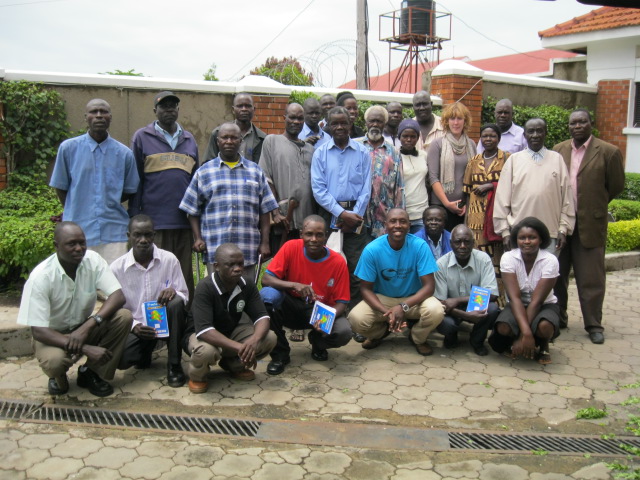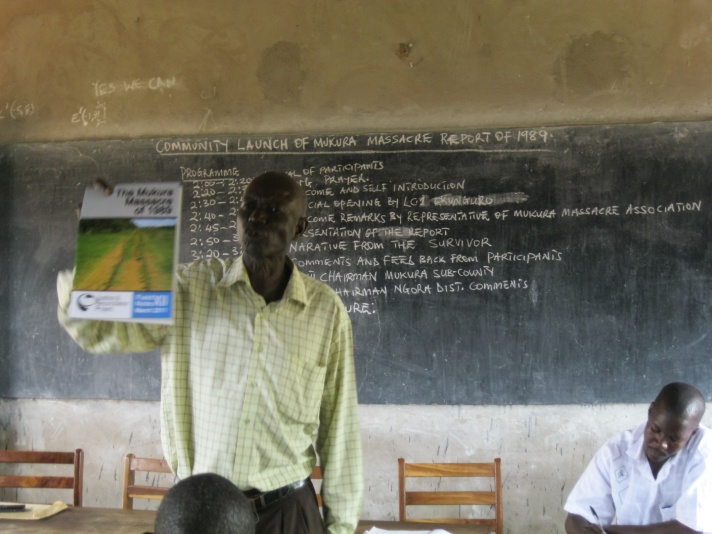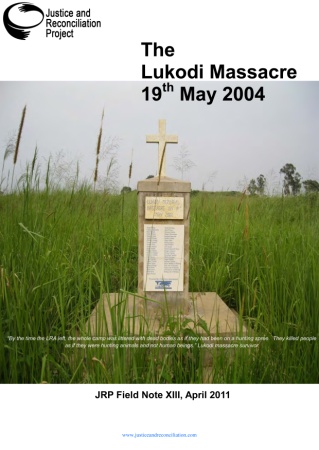“Mukura victims poorly compensated- report,” New Vision, 19 May 2011
http://www.newvision.co.ug/D/8/17/755202?highlight&q=In%20Memory%20of%20Mukura%20Victims
By Godfrey Ojore
A report by the justice and reconciliation project on the 1989 Mukura massacre has said compensation of relatives of the victims was poorly handled.
The report pinned former Kumi MP Jaff Akiror for excluding names of relatives who had missed out on the compensation package.
The report, compiled last year, said Akiror only paid six out of the 47 known survivors.
“This contradicts an article published in the media in January which said 88 families had been paid sh209m,” the report read in part.
The report was launched at Mukura Memorial Secondary School, which the Government built in memory of the victims.
“The President instructed the Attorney General to assess the damage and ensure full compensation to the victims and the families of the deceased. What then was Akiror’s role in the process,” the report questioned.
Lead researcher Lino Ongora said they were not happy with Akiror’s involvement because she did not conduct proper verification of the relatives of the deceased, resulting in many of them missing on the paying list.
However, Akiror rejected the report. “Did they show you bank statements indicating that I did not pay the relatives of the deceased? Didn’t they know that as an MP, I had a right to collect the money and distribute it?” she asked.
However, at the launch of the report, two old women, Tereza Amujal and Madelena Adongo who lost their sons, said they were not paid. “I was told the money was over. So I went back,” Adongo who lost her sons, John Olinga and Lawrence Oboi, said.
The Government has constructed a mass grave at the railway station where the incident occurred.
Kumi resident district commissioner Samuel Mpimbaza Hasaka received the report on behalf of the Government.
In 1989 during the insurgency in Teso region, soldiers rounded up people suspected to be rebels and herded them into a train wagon before setting fire beneath it.
About 69 people are said to have died due to suffocation.
He, however, pointed out that the report did not include the achievements done by the Government like erecting the monument, apology of the President to the people of Teso and constructing a secondary school.
“That was a stupid mistake by a few indisciplined army officers. It is regrettable and painful,” Hasaka said.
The report recommends government to bring to book the perpetrators of this horrendous act and finalise policy on reparation to provide clear guidelines for the victims of the past atrocities.
In 1989 during insurgency in Teso region, soldiers rounded up people suspected to be rebels and herded them into a train wagon before setting fire beneath it.
About 69 people are said to have died due to suffocation in the wagon.







